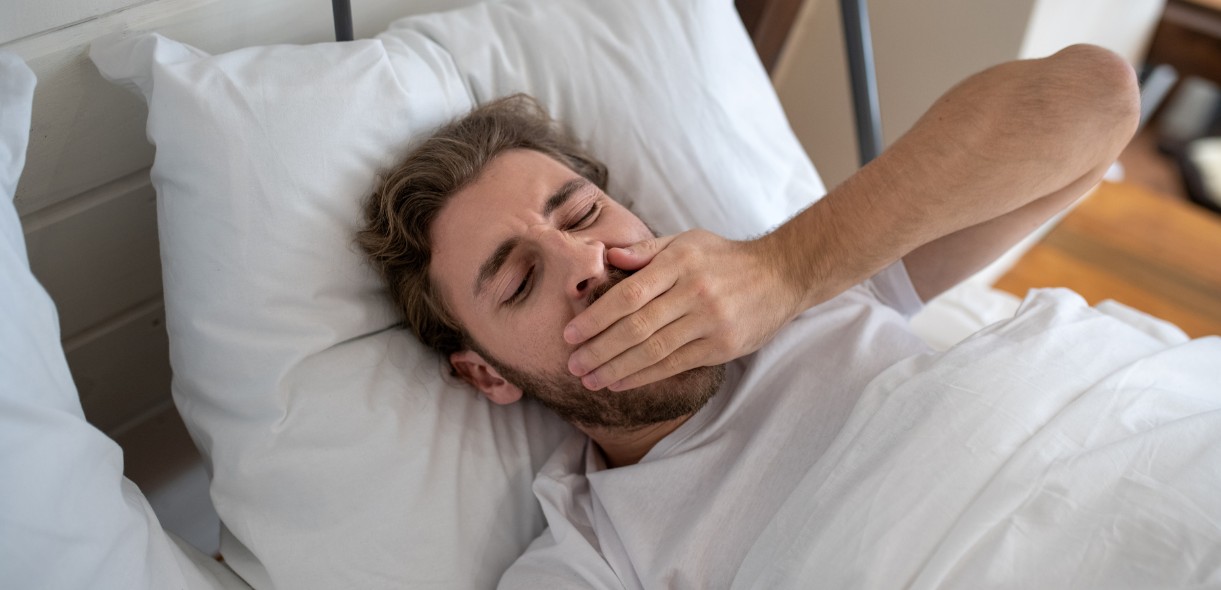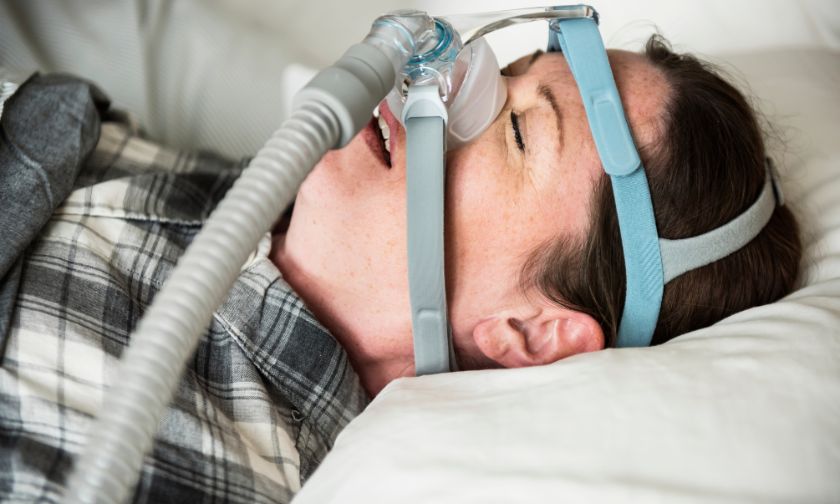Sleep Apnea and its Impact on Your Oral Health

Sleep apnea is a prevalent sleep disorder affecting millions of Americans. It’s characterized by repeated pauses in breathing throughout the night, often leading to loud snoring and daytime fatigue. While the disrupted sleep quality is a significant concern, there’s another aspect of sleep apnea that often goes unnoticed: its impact on your oral health. This blog delves into the surprising connection between sleep apnea and your smile. We’ll explore how sleep apnea can affect your teeth, gums, and jaw joints and discuss the importance of getting proper sleep apnea treatment in Rocklin, CA.
How Sleep Apnea Affects Your Mouth
Sleep apnea disrupts the natural balance in your mouth and throat in several ways. Here’s how it can affect your oral health:
- Dry Mouth: During healthy sleep, we breathe primarily through our noses. However, with sleep apnea, the blocked airway forces mouth breathing. This chronic dry mouth reduces saliva production, which is essential for washing away bacteria and food particles. The lack of saliva creates a breeding ground for bacteria, increasing the risk of cavities, gum disease, and bad breath.
- Teeth Grinding (Bruxism): The body’s struggle to breathe during sleep apnea episodes can trigger teeth grinding or clenching (bruxism) as an unconscious attempt to open the airway. This constant grinding wears down tooth enamel, making teeth more susceptible to chipping, cracking, and increased sensitivity.
- TMJ Disorders: The temporomandibular joint (TMJ) connects your jaw to your skull. The stress and strain from bruxism associated with sleep apnea can lead to TMJ disorders. This can cause pain in the jaw joint, headaches, difficulty chewing, and even earaches.
- Gum Disease: Sleep apnea can contribute to gum disease by creating an environment ripe for bacterial growth. Additionally, inflammation caused by sleep apnea may worsen existing gum disease.
How Oral Health Issues Can Worsen Sleep Apnea
The connection between sleep apnea and oral health is a two-way street. While sleep apnea can disrupt your oral health, oral health problems can also worsen sleep apnea symptoms. Here’s how:
Obstructive Culprits
- Large Tonsils and Adenoids: Enlarged tonsils and adenoids can act like bulky gatekeepers in your airway. During sleep, these tissues can relax and collapse, further narrowing the airway and causing sleep apnea. In some cases, removing these tissues can significantly improve airflow and reduce sleep apnea severity.
- Misaligned Bite: Your bite isn’t just about aesthetics. A misaligned bite, like an overbite or underbite, can affect your jaw position and tongue placement. This can lead to a smaller airway space, making it more prone to collapse during sleep and worsening sleep apnea. Orthodontic treatment to correct the bite or the use of oral appliances can help open up the airway and improve sleep.
Beyond Blockages
- TMJ Dysfunction: Temporomandibular joint (TMJ) dysfunction can cause pain and stiffness in the jaw joint. This discomfort can disrupt sleep and potentially worsen sleep apnea by making it harder to maintain proper jaw position throughout the night. Treating TMJ dysfunction can improve sleep quality and potentially reduce sleep apnea events.
- Muscle Weakness: Weak throat muscles can contribute to sleep apnea by allowing the airway to collapse more easily. Strengthening these muscles through specific exercises or oral appliance therapy can help keep the airway open during sleep and improve sleep apnea symptoms.
Inflammation Connection
Periodontal disease, also known as gum disease, is a chronic inflammatory condition of the gums and tissues surrounding the teeth. Research suggests a link between gum disease and sleep apnea, with some studies showing a higher prevalence of sleep apnea in people with gum disease. The inflammation associated with gum disease might contribute to airway narrowing and worsen sleep apnea. Maintaining good oral hygiene and addressing gum disease can be beneficial for both oral and sleep health.
The Importance of Sleep Apnea Treatment
There are several effective sleep apnea treatments in Rocklin, CA, depending on the severity of your condition. Here are some common options:
- Continuous Positive Airway Pressure (CPAP): This machine delivers a constant stream of air pressure through a mask worn during sleep, keeping your airway open.
- Oral Appliance Therapy: A custom-made mouthpiece that helps keep your airway open while you sleep.
- Surgery: In some cases, surgery may be recommended to remove tissue blocking the airway.
Addressing sleep apnea not only improves your sleep quality and overall health but also protects your smile in several ways:
- Reduce dry mouth and promote better oral hygiene: Sleep apnea often leads to mouth breathing, which dries out your mouth. Saliva plays a vital role in washing away bacteria and food particles. By keeping your airway open and reducing mouth breathing, CPAP or an oral appliance can help maintain a healthy oral environment.
- Minimize teeth grinding and jaw pain: Sleep apnea can cause you to clench or grind your teeth at night. This can damage teeth, cause headaches, and lead to jaw pain. Treatment can help reduce these symptoms and protect your teeth from wear and tear.
- Lower your risk of gum disease: A dry mouth caused by sleep apnea can contribute to the growth of bacteria, which can lead to gingivitis (gum inflammation) and eventually periodontitis (gum disease). Treating sleep apnea can help prevent these conditions and keep your gums healthy.
- Protect your teeth from acid erosion: When you experience sleep apnea episodes, your body becomes acidic due to a lack of oxygen. This acidity can erode tooth enamel, making teeth more susceptible to cavities. Treatment can help regulate your body’s pH and protect your teeth from this erosion.
Sleep apnea can significantly impact your oral health in several ways. By disrupting sleep and reducing saliva production, it creates an environment ripe for tooth decay, gum disease, and even TMJ disorders. Early diagnosis and proper sleep apnea treatment in Rocklin, CA, can prevent future complications and promote overall well-being. Additionally, maintaining good oral hygiene practices and visiting your dentist regularly becomes even more essential when dealing with sleep apnea. By taking a two-pronged approach, you can address both sleep apnea and its oral health consequences, leading to a healthier and happier you.



